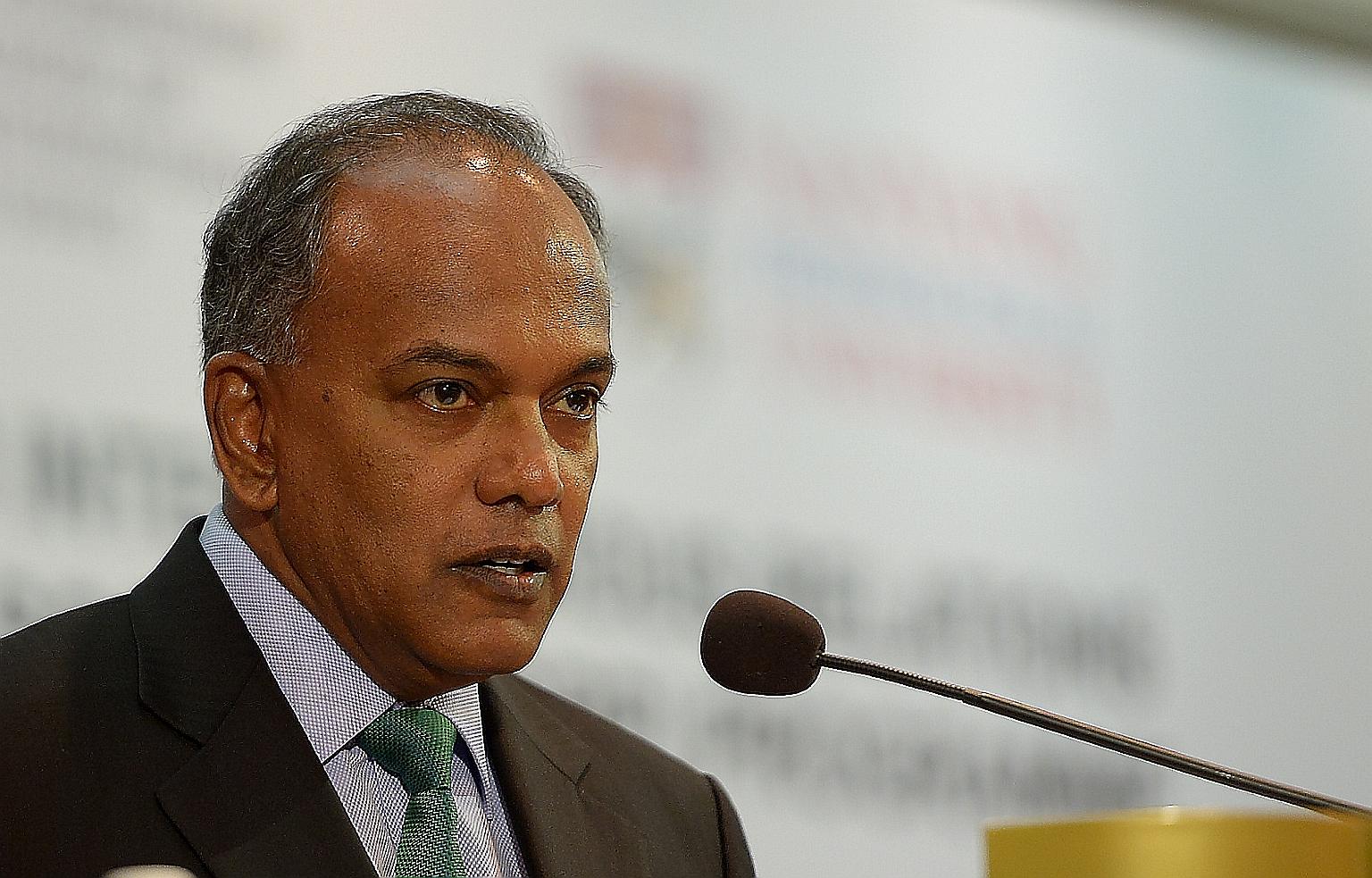Countering terrorism
More surveillance cameras as deterrent
Sign up now: Get ST's newsletters delivered to your inbox

Measures to boost security will also apply to soft targets like sports facilities and malls, said Mr Shanmugam.
1
The network of closed-circuit television (CCTV) cameras will expand significantly over the next four years, to ramp up surveillance and deter those plotting terror attacks in Singapore.
The Government will also, where necessary, pass laws to require building owners and organisers of major events to step up security, said Home Affairs Minister K. Shanmugam yesterday.
In a speech to senior Home Team officials, Mr Shanmugam laid out plans to protect key infrastructure such as government buildings, as well as soft targets like shopping malls and sports facilities.
All 10,000 Housing Board blocks and multi-storey carparks will have police cameras installed by the end of this year, he said.
Electronic eyes will be put up at common heartland areas next, especially in crowded places such as town centres and hawker centres .
The Straits Times understands that another 11,000 cameras will be installed over the next four years, on top of the 65,000 police cameras that will be in place by this year.
Apart from police cameras, footage from other CCTV cameras will be made available to police on demand, including those monitoring the public transport system and commercial and government buildings, he said.
Crowdsourcing platforms will also be set up for members of the public to send videos to the police.
Citing how tight security at the Stade de France stadium and a larger mall in Jakarta had helped foil planned attacks there, Mr Shanmugam said new laws will be passed where needed to enhance security at buildings and major events.
He said strict security checks had deterred three suicide bombers from entering the stadium in France. "Imagine the consequences if they had managed to get into the stadium and then exploded themselves," he said. Coordinated attacks in Paris killed 130 people that day.
As for the Jakarta attacks in January near the popular Sarinah mall that killed two bystanders and injured more than 20 others, Mr Shanmugam said the militants had apparently targeted a larger mall nearby but abandoned their original plan due to tight security there.
In Singapore, developers of large-scale projects will be asked to factor in security considerations at the design stage. Building owners could be asked to install CCTV cameras, and there will be security screenings at major events.
"There are good reasons for requiring these measures," Mr Shanmugam said. "Terrorist attacks in other places have focused on soft targets because there was little or no security protection."
Ramping up security will increase building and operating costs, but this cannot be avoided, he said.
Associate Professor Kumar Ramakrishna, head of policy studies at the S. Rajaratnam School of International Studies, acknowledged privacy concerns over expanding CCTV camera coverage, but said: "You can't trade security for anything else."


